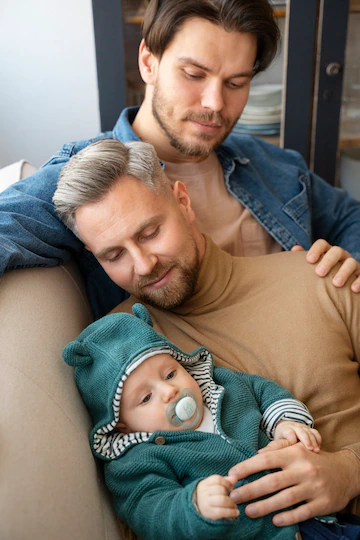Introduction:
Mental health is a vital aspect of overall well-being, and it is especially crucial for young adults who identify as LGBTQ+ (Lesbian, Gay, Bisexual, Transgender, Queer/Questioning, and others). South Africa has made significant progress in LGBTQ+ rights, but challenges and stigma persist, leading to unique mental health concerns within the community. This article aims to provide a comprehensive guide for young adults in South Africa on supporting LGBTQ+ mental health and fostering a more inclusive and affirming society.
- Understanding LGBTQ+ Mental Health:
It is essential to educate ourselves about the specific mental health challenges faced by LGBTQ+ individuals. This includes higher rates of depression, anxiety, substance abuse, self-harm, and suicidal ideation compared to their heterosexual and cisgender counterparts. Understanding the impact of societal stigma, discrimination, and prejudice can help create empathy and support for LGBTQ+ individuals.
- Seek LGBTQ+-Affirming Mental Health Services:
Finding mental health professionals who are knowledgeable and affirming of LGBTQ+ experiences is crucial. Look for therapists, counselors, or psychiatrists who have experience working with LGBTQ+ individuals and understand the unique challenges they may face. Organizations such as the Triangle Project and OUT LGBT Well-being can provide resources and referrals to LGBTQ+-friendly mental health professionals.
- Build Supportive Communities:
Creating and fostering supportive communities is vital for LGBTQ+ mental health. Seek out LGBTQ+ support groups, organizations, or online communities where you can connect with peers who share similar experiences. These safe spaces provide opportunities for validation, understanding, and shared resources, reducing feelings of isolation and promoting mental well-being.
- Educate Yourself and Others:
Education is a powerful tool for combating stigma and promoting LGBTQ+ mental health. Take the initiative to educate yourself about sexual orientation, gender identity, and the challenges faced by the LGBTQ+ community. Engage in discussions with friends, family, and colleagues to challenge misconceptions, stereotypes, and discriminatory attitudes. Advocate for inclusive policies and LGBTQ+-inclusive curricula in schools and universities.
- Be an Ally:
Supporting LGBTQ+ mental health extends to being an active ally. Stand up against homophobic, biphobic, and transphobic language and behavior. Use inclusive language and pronouns, and respect individuals’ chosen names and identities. Foster a safe and inclusive environment where LGBTQ+ individuals feel comfortable expressing themselves without fear of judgment or discrimination.
- Access LGBTQ+-Friendly Resources:
Several organizations and online platforms provide valuable resources for LGBTQ+ mental health support. Websites like the Triangle Project, OUT LGBT Well-being, and The South African Depression and Anxiety Group (SADAG) offer information, helplines, and counseling services specifically catered to LGBTQ+ individuals. These resources can be instrumental in times of need or when seeking additional support.
- Self-Care and Well-being:
Encouraging self-care practices is vital for LGBTQ+ individuals’ mental health. Engage in activities that bring you joy, relaxation, and stress relief. Prioritize self-care routines that include physical exercise, mindfulness, creative outlets, and seeking healthy social connections. Taking care of your own mental well-being allows you to better support others and be an advocate for positive change.
- Professional Help:
If you or someone you know is struggling with mental health, do not hesitate to seek professional help. Mental health challenges should be addressed by qualified professionals. Helplines such as SADAG Suicide Crisis Helpline (0800 567 567) or Lifeline South Africa (0861 322 322) are available 24/7 and provide immediate support and guidance.
Conclusion:
Supporting LGBTQ+ mental health requires a collective effort to create a more inclusive and affirming society. By understanding the challenges faced by LGBTQ+ individuals, educating ourselves, and fostering supportive communities, we can contribute to positive change. Let us strive to build a South Africa where everyone, regardless of sexual orientation or gender identity, can thrive mentally, emotionally, and socially.










